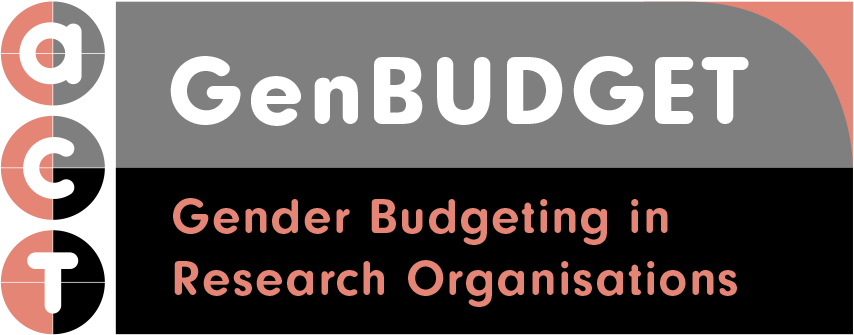
We are getting closer to the end of the ACT project, which has supported the development of the GenBUDGET CoP for more than two years. Despite the challenges created by Covid-19, the CoP members have found ways to continue their work and grow the community. Being at this crossroads, it is appropriate to highlight the CoP’s main activities and outcomes:
- Online monthly meetings: Since September 2019, the GenBUDGET CoP has organized and held monthly meetings to discuss the CoP’s activities, approaches to gender impact assessment and the CoP members’ projects. This has allowed the members to interact, share experiences and learn from each other, share their concerns, and seek guidance on how to tackle hindrances, indifferences, and other problems they are facing with their projects.
- Face-to-face meeting at DESY headquarters in Hamburg: The ACT project made it possible for the CoP members to meet in person in January 2020. Being able to meet face-to-face was a good experience for the CoP and important for the community building and growth. Following, the CoP members seemed to experience more capacity to contact and help each other when needed. Their relationships seemed to be more relaxed than before, indicating that the meeting was an important opportunity for the CoP members to build trust and relationships, share ideas with other members, ask questions, and listen to each other.
- Establishment of the targeted implementation projects (TIPs): Many CoP members have taken on TIPs, based on local conditions and circumstances at their institutions. In their projects, they assess gender impact of one or more financial managerial mechanisms. This work has resulted in diverse projects established by the CoP members, including projects on the distribution of financial funds, gender pay gap, workload allocation schemes, internal research grants processes, the status of sessional teachers, and postgraduation status of PhD earners.
- Collaboration with Gendersense: Research funding from the University of Iceland made it possible for the seed partners to invite the CoP members to participate in the coinciding research project, Gendersense, and receive additional support with their TIPs. In those cases, a seed partner researcher took more active part in developing a research design, collecting data, performing the gender impact assessment, and developing objectives and measures. This collaboration has contributed to the publication of one article:
- Steinþórsdóttir, Finnborg Salome, Fiona Carmichael, & Scott Taylor. (2021). Gendered workload allocation in universities: A feminist analysis of practices and possibilities in a European University. Gender, Work & Organization, 2021,1-17. doi:10.1111/gwao.12709.
- Collaboration with Gendersense: Research funding from the University of Iceland made it possible for the seed partners to invite the CoP members to participate in the coinciding research project, Gendersense, and receive additional support with their TIPs. In those cases, a seed partner researcher took more active part in developing a research design, collecting data, performing the gender impact assessment, and developing objectives and measures. This collaboration has contributed to the publication of one article:
- Two online workshops: GenBUDGET had an opportunity to organise two online workshops. The first workshop consisted of three meetings in April and May 2020 and the second workshop included one meeting in April 2021. These workshops were tremendously important in establishing and sustaining GenBUDGET’s sense of community. The 2020 workshop created an opportunity for the CoP to have interactive discussion on GenBUDGETS’s next steps and the sustainability of the community. In the 2021 workshop, the CoP members discussed the experiences of collaborating in the CoP during the Covid-19 pandemic.
- Webinar series: To reach the outer world, the CoP members presented their TIPs in three GenBUDGET webinars, held December 2020 and February and May 2021. The aim of the webinars was to enhance the knowledge of gender biases in decision making at RPOs. By presenting their ongoing projects and share their experiences, the CoP members have continued the consensus building of gender budgeting practices.
- Welcoming of new GenBUDGET CoP members: When the CoP was established in 2019, it had 16 representatives from eight universities and two research institutions. In January 2021, additional five representatives from four universities joined the CoP. Thus, due to the hard work of the CoP members, GenBUDGET now has 21 representatives from 12 universities and two research institutions distributed over 11 countries, i.e., the Nordic countries, Western and Southern Europe.
- Policy brief: In the 2021 workshop the CoP members decided to write a policy paper with targeted information to reach decision-makers in universities and research institutes: what is gender budgeting, what should institutions be doing? What can come out of those small projects? The policy brief will be published by the end of September 2021 (see here: https://www.act-on-gender.eu/sites/default/files/actongender_policy_brie...).
- Sustainability of the GenBUDGET CoP: The CoP members are also eager to continue their work and are thinking about the future, thus, how to move forward. One way would be to include more intersectional approach to the CoP - Gender+ budgeting is something we believe is an interesting focus. This is a highly relevant topic. Improving intersectional analysis in a decolonizing research context, might, for instance be one approach.
Keywords:
Categories:
